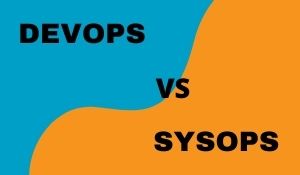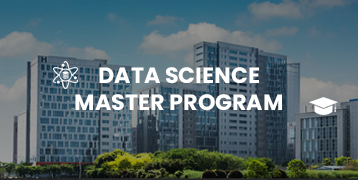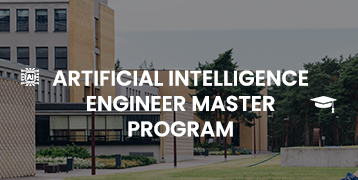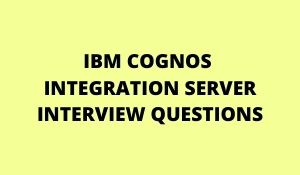
Overview
The developments in technology are very vital for changing the IT landscape as we recognize it today. Cloud computing has been an integral technological improvement that provides excellent potential for the future. As many new technologies make an entry into the cloud computing sector, the discussion on SysOps vs DevOps is becoming popular.
In the past, business owners had to appoint various employees to perform specific activities. The notable job roles that have been prominent long before that include developers, testers, database administrators (DBAs), system engineers, operators, and network engineers. However, as cloud computing rose to prominence, these job roles started becoming simpler. Cloud computing improved the ease of a DBA’s task by 20%, a system admin’s task by 50%, and a network engineer’s task by 80%.
Therefore, system administrators should now focus on aiding developers in the process of building applications rather than on the developer’s mistakes. As a result, DevOps came into existence. The system administrators now have additional time at their disposal with the reduction in tasks under their responsibility. At the same time, SysOps also observed recognition due to the need for businesses to align with certain standards. This article will provide you with a fundamental introduction to both SysOps and DevOps, along with the key differences between the two.
What is DevOps?
DevOps indicates a very essential concept that helps the management of development and operations tasks together. The entire focus of DevOps is on tasks such as development, testing, integration, and monitoring. DevOps entails the use of open-source and cross-platform tools like Chef and Puppet for delivering system configuration and automation. So, on the one hand, system administrators deal with infrastructure-building tasks in DevOps. On the other, developers have to address the issues of continuous deployment via automation of build tools.
| Learn more information from the GoLogica “DevOps Training“ |
DevOps permits organizations to:
- Reduce the implementation time of new services from months to minutes
- Increase the productiveness of enterprise and IT teams
- Save costs on maintenance and upgrades, and remove needless capital expenditure
- Standardize strategies for easy replication and quicker delivery
- Improve quality, reliability, and reusability of all system components
- Increase the rate of success for digitization techniques and transformation projects
- Ensure that money invested in cloud infrastructure, analytics, and data management is no longer wasted.
What is SysOps?
SysOps delivery style is ITIL, which is a set of thorough suggestions for IT service management (ITSM) that concentrates on aligning business desires with IT services. It is used to exhibit compliance and estimate improvement. It is exceptional from DevOps despite a few similarities. SysOps generally offers the administration of multi-user systems. The regular role of a SysOps professional involves the administration of a particular computer system. However, the current role of SysOps professionals focuses on forming a benchmark for an organization to design, execute, and monitor an application. The work of SysOps administrators normally entails monitoring and justifying the right cloud services and fine practices. The formidable difference between DevOps and SysOps is that the latter is a basic approach that helps the monitoring, management, and operation of infrastructure systems. The work of SysOps is additionally evident in the troubleshooting of issues arising during operations.
Key Difference between SysOps and DevOps :
| Parameters | Sysops | Devops |
|---|---|---|
| Delivery Methodology | The SysOps delivery style is the ITIL (Information technology Infrastructure library) approach. | The DevOps delivery model lies in the robust co-ordination between development and operations teams. |
| Code Development | When aiding a developer’s team, the SysOps team typically tends to favor a consistent code change rate and code deployments. | The DevOps team tends to favor the unpredictable code change rate and code deployments. |
| Reaction to Change | The SysOps approach lies in providing risk free continuation of services, and it is not so flexible to change. | The DevOps approach is open to change as development and operations teams sit together and arrive at an effective consensus to address the change. |
| Change Entity | The SysOps team works on servers to bring about the change required for it. | The DevOps team works around the code to bring about the change they intend to bring. |
| Service Approach | The SysOps approach is keen on making the system processes work smoothly around the organization. | The DevOps approach involves enriching the business value of the organization. |
Conclusion
In the internet and cloud era, SysOps and DevOps techniques are changing the development manner of any software or application. It is a vital element that is required through the business to thrive in any market. The customer-oriented services are furnished through many businesses with the help of online and internet-related software programs or applications. These business companies are using DevOps and SysOps platforms to obtain profit and success. However, it relies upon the requirement and demand of a customer or customer that set the method of business. You can go for any of them with guaranteed success in the market.
Related Articles:
🎯 Top 10 DevOps Tools You Must Know In 2025
🎯 Why Learn DevOps With AWS
🎯 AWS DevOps Interview Questions and Answers Updated 2025
🎯 DevOps Interview Questions and Answers
🎯 Saltstack Tutorial
🎯 An Introduction to Ansible
🎯 Chef DevOps Tutorials













